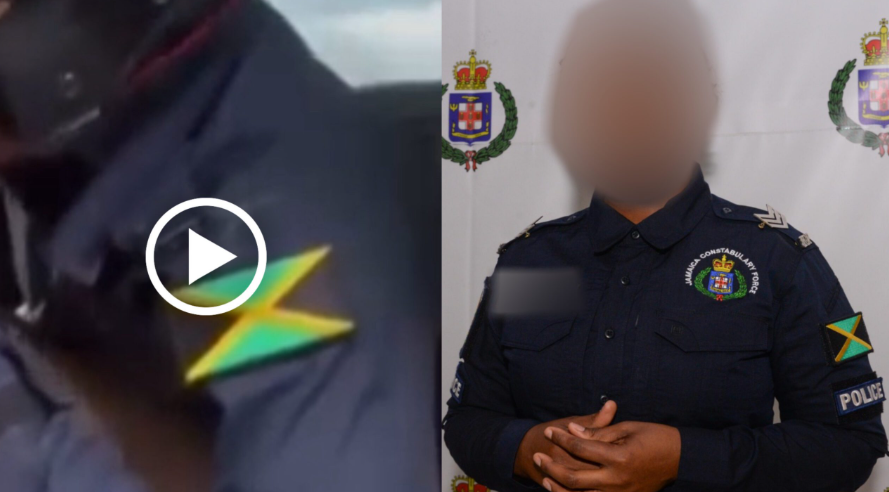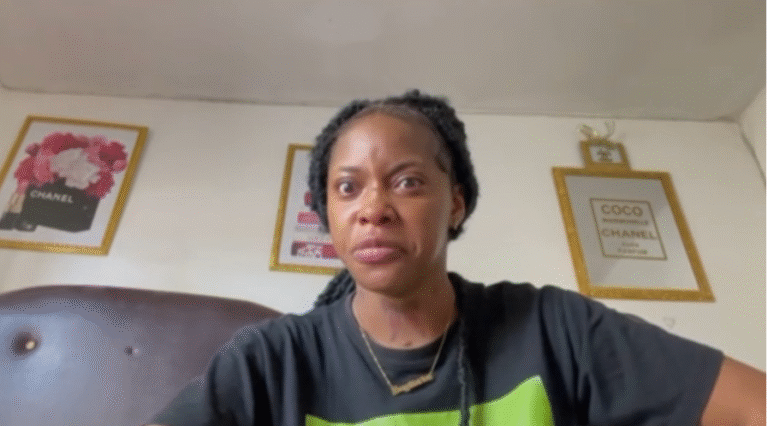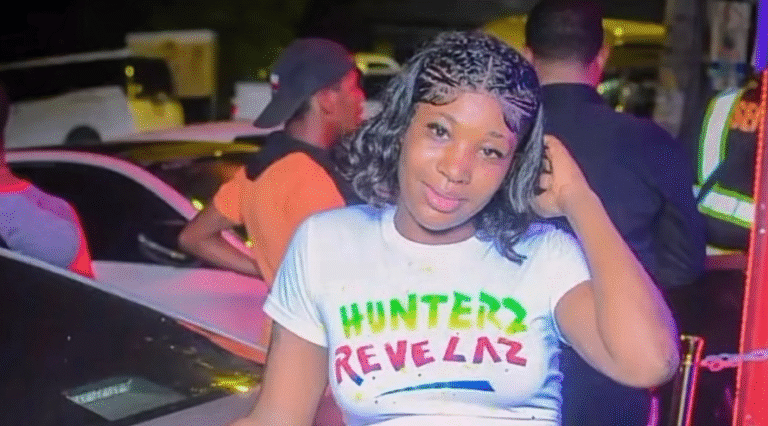Video Leak with Policewoman in Compromising Position
In today’s digital age, video leaks have become a significant topic of discussion across the globe, particularly when they involve public figures, such as police officers. The recent controversy surrounding a video leak with a policewoman in a compromising position has sparked intense debate about privacy, public trust, and the ethics of sharing sensitive material without consent. This article aims to explore the situation, the societal impact, and the lessons we can learn from these unfortunate incidents.
Understanding the Video Leak: What Happened?
A video leak involving a policewoman in a compromising position recently went viral across social media platforms, attracting both public attention and media scrutiny. The video, which was initially intended to remain private, quickly spread, leading to significant consequences for the individuals involved. In many cases like this, the video may have been filmed secretly or shared without the consent of those featured, raising critical questions about the right to privacy.
What is a Compromising Position?
A “compromising position” generally refers to a situation where an individual is caught in a vulnerable, embarrassing, or inappropriate circumstance that could damage their reputation. In the case of law enforcement personnel, such incidents can lead to a serious erosion of public trust.
See also: Jamaican TikToker ‘TT’ Goes Viral in Raunchy Video
Why is this a Concern for the Public?
The leak of such videos involving police officers has several far-reaching consequences. For law enforcement agencies, the impact can be disastrous, affecting morale, public perception, and even career progression for the involved officers.
The Erosion of Trust in Law Enforcement
One of the main reasons why a video leak involving a policewoman in a compromising position is a significant issue is the potential erosion of public trust. Police officers are expected to uphold the law and maintain a high moral standard. When a member of the force is implicated in a scandal, it can cause the public to question their integrity and the integrity of the entire law enforcement community.
Privacy and Ethical Concerns
Another concern raised by such leaks is the invasion of privacy. Videos that are shared without consent can be devastating, especially when the person involved is a public figure like a policewoman. The ethical issues surrounding the release of private material without permission are highly contentious and remain a subject of ongoing debate.
Legal and Professional Implications
A video leak involving a policewoman in a compromising position also has serious legal and professional implications. Depending on the content and circumstances, the situation can lead to criminal investigations, disciplinary actions within the police department, and even lawsuits.
Investigation and Legal Consequences
In some instances, leaking a video without consent can result in legal consequences for those involved in the distribution of the material. Criminal charges could be filed against individuals who unlawfully recorded or shared the video. Furthermore, if the policewoman was targeted due to discrimination or harassment, the responsible parties could face additional charges.
Internal Disciplinary Actions
The police department in question may also initiate an internal investigation to determine whether any law enforcement protocols were violated, either by the officer herself or other personnel. Depending on the severity of the situation, disciplinary measures could include suspension, reassignment, or even termination.
Impact on the Officer’s Personal and Professional Life
The leak of such a video can have a profound impact on the personal and professional life of the officer involved. For many, their career may be permanently tarnished due to the scandal, even if they were not at fault for the initial leak.
Social and Emotional Consequences
The social and emotional consequences for the policewoman involved are equally significant. The negative attention, public humiliation, and emotional toll of dealing with such a situation can have lasting effects on her mental health and well-being.
Career Impact
In terms of career impact, law enforcement officers are often held to a higher standard than the general public. As such, the policewoman may find it difficult to continue her career, even if she is exonerated, due to the stigma associated with the video leak.
The Role of Social Media in Spreading Leaked Videos
Social media platforms play a major role in the rapid spread of such videos. What starts as a private moment can quickly become a viral sensation, amplified by platforms like Twitter, Instagram, and Facebook.
How Social Media Fuels the Spread of Leaks
Once a video is uploaded to a social media platform, it is often shared, reposted, and commented on by thousands, if not millions, of users. This can turn a private incident into a public spectacle, leaving little room for privacy or dignity for the individuals involved.
The Responsibility of Social Media Platforms
Social media platforms have a responsibility to monitor and regulate the content shared on their platforms. Many platforms have begun to take steps to address the spread of non-consensual content by removing videos that violate their policies. However, the rapid pace of content-sharing means that videos can sometimes go viral before they are flagged or removed.
What Can Be Done to Prevent Future Leaks?
While the situation is deeply unfortunate, there are several measures that can be taken to prevent similar incidents in the future. These measures not only protect individuals but also help maintain the integrity of law enforcement agencies.
Stronger Privacy Protections
One of the primary ways to prevent future leaks is to implement stronger privacy protections for both officers and civilians. This could include stricter rules around the recording and sharing of videos and greater penalties for those who violate privacy laws.
Educational Programs
Police departments can benefit from implementing educational programs designed to help officers understand the consequences of personal actions and their impact on their careers and the public. Additionally, public awareness campaigns can be effective in educating individuals on the ethical implications of video leaks.
FAQ: Addressing Common Questions on Video Leaks Involving Police Officers
1. Is it illegal to share a private video without consent?
Yes, sharing a private video without consent can be illegal, depending on the jurisdiction. Many regions have laws against non-consensual pornography, which includes sharing private videos without the permission of the person involved.
2. How can police officers protect their privacy?
Police officers can protect their privacy by ensuring that any sensitive content is shared only within trusted circles. They should also be aware of the risks of sharing personal videos or images on public or unsecure platforms.
3. What should be done if a police officer’s video is leaked?
If a police officer’s video is leaked, they should immediately contact their department’s legal team and report the situation to the relevant authorities. It may also be necessary to contact social media platforms to request removal of the content.
4. Can police officers face disciplinary action for personal videos?
Yes, if a police officer’s personal video is deemed to have violated ethical or departmental standards, disciplinary action may be taken, depending on the severity of the situation.
5. How do video leaks affect public trust in law enforcement?
Video leaks can significantly erode public trust in law enforcement. When a police officer is involved in a scandal, it can cause the public to question the integrity and professionalism of the entire force.
6. What can be done to ensure video leaks are addressed fairly?
To ensure video leaks are addressed fairly, it is important to have clear legal and departmental procedures in place. Investigations should be thorough, and any decisions made should be based on the facts of the case, rather than public opinion.
Conclusion: The Need for Privacy, Ethics, and Accountability
A video leak involving a policewoman in a compromising position raises serious questions about privacy, ethics, and the role of social media in spreading sensitive content. These incidents not only impact the individuals involved but also have wider consequences for public trust and the integrity of law enforcement agencies. To prevent similar situations in the future, stronger privacy protections, greater ethical awareness, and a focus on accountability are essential for maintaining trust between law enforcement and the communities they serve.
By addressing these challenges head-on, we can help ensure that the rights and dignity of individuals are respected, both within the law enforcement community and beyond.



